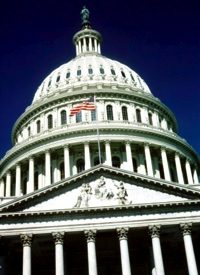
EPA claims a 2007 Supreme Court ruling gave it the authority to regulate so-called greenhouse gases (GHG), including carbon dioxide, under the Clean Air Act. The first phase of these regulations went into effect January 2, establishing new standards for light-duty vehicles and stationary sources. Power plants and refineries fall under new rules in July and December of this year, respectively.
The updated regulations launch a cap-and-trade program, forcing companies to get permits to emit GHGs. Critics argue cap-and-trade legislation died in congressional committee this year, lacking enough support even in the Democrat-controlled Congress to pass. Many senators worried about the proposal’s effect on employment in their states, and the Congressional Budget Office estimated one cap-and-trade bill, S. 1462, would have raised spending by $13.9 billion over the next decade and increased the national budget deficit by $13.5 billion over the same period. Yet the Obama Administration is following through on its threat to regulate “in a command-and-control way” since Congress did not pass the bill.
The New York Times predicts that the battle between Congress and EPA will mean problems for both. Should EPA move too quickly “it risks a Congressional backlash that could set back the effort for years.” But by shackling EPA, Congress might anger constituents who believe their stonewalling an endangerment to public health.
The Lone Star State, however, isn’t waiting around for Congress to act. Typical of its “Don’t Mess with Texas” slogan, the state has refused to implement the new rules, filing a petition late last week with the U.S. Circuit Court of Appeals in Washington to fend off federal intervention. It accuses EPA of
abusing its powers in an attempt to evade citizen participation in the regulatory process. The Agency relies on its emergency administrative powers to coerce a result that Congress never intended and that the Agency has been unable to achieve through the appropriate regulatory process. And now, the day before a holiday weekend, the Agency issues a sweeping and unlawful action, in a transparent attempt to prevent the State of Texas and its citizens not only from commenting on EPA’s unlawful action, but from even knowing about it.
On December 30 of last year, the court temporarily blocked EPA from taking control in Texas and ordered the agency to respond by January 6. A dozen other states are suing EPA over the new rules but are complying with them for the time being. Meanwhile, the federal agency also announced it will directly regulate environmental policies in seven states because of their failure to comply with the Clean Air Act in regard to GHGs.
Larry Goldenhersh, chief executive of Enviance, a software company that specializes in environmental compliance products, predicted the outcome of such lawsuits and any future resistance. “You are at the point of the sword, and the president will regulate greenhouse gas emissions without Congress,” he told Grist Magazine. “You can sue, but it will take forever. You will be forced to comply with these rules, and if you don’t it will cost you a fortune.”




